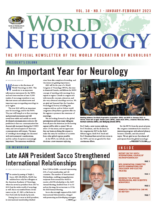The course is provided at the Danube University and supported by the European Federation of Autonomic Societies.
By Walter Struhal

Walter Struhal
The autonomic nervous system (ANS) regulates the synergistic action of all visceral organs and homeodynamic processes. ANS is involved in the course of many neurologic and systemic diseases. Recently, ANS involvement including postural tachycardia syndrome was identified to play a significant role in cases with post-COVID condition.
ANS diseases may cause various dysfunctions, for example, transient loss of consciousness, sweating disorders, digestion, and urinary and sexual function. Autonomic involvement may be generalized, or focal. It may involve central, and/or peripheral ANS structures. The transformation of this appealingly complex pathophysiology into a clinical picture helps to explain the patient’s symptoms, define the syndrome and initiate treatment. A number of therapies are well-investigated but “off-label.” Diligent transformation of literature research into state-of-the-art therapeutic strategies is therefore an important competence of a clinical autonomic neuroscientist.
European Program of Clinical Autonomic Neuroscience
The European Federation of Autonomic Societies (EFAS), together with the Danube University Krems, and the Karl Landsteiner University of Health Sciences have initiated the first Pan-European University Course to study techniques on bedside and lab investigations of ANS disorders and common strategies of therapeutic management. This academic postgraduate course takes one year and will be completed with a university diploma.
This program is open to medical doctors in training and specialists of all disciplines. This program is open for registration. Register now. •
